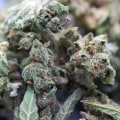Hemp (Cannabis sativa) is the same plant species as cannabis. Unlike cannabis, hemp contains very low levels of delta-9-tetrahydrocannabinol (THC). Both hemp and cannabis also contain cannabinoids such as cannabidiol (CBD), cannabidivarin (CBDV), cannabigerol (CBG) and others. Hemp plants and marijuana plants are of the same species.
Cannabis is a natural product, whose main psychoactive component is tetrahydrocannabinol (Δ9-THC). The cannabis plant (Cannabis sativa L). Along with tobacco, alcohol and caffeine, it is one of the most commonly used drugs in the world and has been used as a drug and source of fiber since historic times. Herbal cannabis consists of the tops and dry leaves of flowers.
Cannabis resin is a compressed solid made from the resinous parts of the plant, and cannabis oil (hashish) is a dissolving extract of cannabis. Cannabis is almost always smoked, often mixed with tobacco. Almost all consumption of herbs, cannabis and resin is illicit material. It has been stated that cannabis has some therapeutic benefits as a pain reliever, and dronabinol is a drug authorized in some countries for the treatment of nausea in cancer chemotherapy.
Cannabis products and Δ9-THC are under international control. Hemp (Cannabis sativa), also called industrial hemp, a plant of the Cannabaceae family cultivated for its bast fiber or its edible seeds. Hemp is sometimes confused with cannabis plants that serve as sources of the drug, marijuana and prepared hashish. Although all three products (hemp, marijuana and hashish) contain tetrahydrocannabinol (THC), a compound that produces psychoactive effects on humans, the cannabis strain cultivated for hemp contains only small amounts of THC compared to that grown for the production of marijuana or hashish.
The hemp industry, increasingly known as “big marijuana”, is working to make CBD much more than a supposed drug and is developing it in the US market as a widely used dietary supplement. Purity testing of these dispensary products must be completed; however, CBD extracts from hemp can be sold to smoke stores or specialty stores without regulation or testing. The oil obtained from hemp seed can be used to make paints, varnishes, soaps and edible oils with a low smoke point. This clearly includes hemp extracts, which is a variety of the cannabis plant; the U.S.
Court of Appeals for the Ninth Circuit denied a request by petitioners to review the final DEA rule. Respondents preferred cannabis-derived CBD to industrial hemp-derived CBD, and only 9% of respondents indicated that they exclusively used hemp-derived CBD. The important point is that a hemp extract that is not purified and monitored will certainly contain a certain concentration of THC. The CDA has no jurisdiction over the processing, sale or distribution of industrial hemp and the CDA does not license or verify the content or quality of any extracted product.
The European Monitoring Centre for Drugs and Drug Addiction (EMCDDA) is the reference point for information on drugs and drug addiction in Europe. Although retired, he serves as an inspector for the National Laboratory Certification Program and is a consultant on issues related to drug abuse. Legally, hemp is defined as a cannabis plant that contains 0.3 percent or less of THC, while marijuana is a cannabis plant that contains more than 0.3 percent of THC. The cultivation of hemp for fiber was recorded in China as early as 2800 BC.
C. and was practiced in the Mediterranean countries of Europe at the beginning of the Christian era, spreading throughout the rest of Europe during the Middle Ages. The novel “hempcrete”, a composite material made of hemp and a lime binder, can be used similarly to traditional concrete in applications that do not withstand loads. Cannabidiol (CBD) is a cannabinoid that has become increasingly popular since hemp was legalized federally.
This law that protects edible hemp products is of particular importance in light of the prescribing information provided for Epidiolex (essentially pure CBD), which warns of potential liver damage and developmental toxicity and other adverse effects that must be monitored by a physician. Hemp can also be used as an alternative to wood pulp in some cases; it is frequently used in papermaking and is a sustainable alternative to fiberglass insulation in buildings. . .








